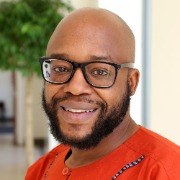OPINION Isabelle Zundel and Prof. Dr Thoko Kaime, 15 June 2020
Renee Bach, a young white American woman with evangelical background, came to Uganda in 2007. Straight out of high school, she had little professional training and even more trifling experience. Yet she was able to found “Serving His Children” a non-governmental organisation (NGO) which worked on child malnutrition. That she was ill-qualified for such a specialised task did not stop her from establishing a foundation in Uganda; her power and privilege as a white “missionary” relegated all the alarm bells that should have belled. Up to this point, the story is not extraordinary. It remains just another of many examples for white saviourism and the attendant power dynamics. To put this in context, according to the government of Uganda, 14,000 NGOs have been officially registered since 1989. In addition to the operations of these organisations, programmes such as “Weltwärts” funded by the German Government support young people from Germany going to the global south under some brand of development aid. In Uganda alone, thousands of foreigners, mainly young and often undertrained people, come every year to do good. In 2015, Uganda belonged to the TOP 10 recipients of official development aid on the African continent.
“Serving His Children” carried out its mission to fight malnutrition by undertaking preventive care programs and treatment services. The foundation started off with the distribution of rice and beans in the slums of Jinja, before evolving into a rehabilitation centre for malnourished children and subsequently a health centre in the end. Through the years, 105 children died at the centre. This obviously should have raised questions regarding the professional responsibility of Renee Bach and “Serving his Children”. However, it seems that the death of the 105 children is not significant enough to trigger accountability. Even medical volunteerism through do-gooders that harms the health status of children is not extraordinary. That it took along campaign for “Serving His Children” and its founder to be investigated for malpractice at their health centre speaks volumes about the balance between children’s rights and the privilege of white saviours.
It is therefore exceptional that Renee Bach and “Serving His Children” are now held accountable for their operations. On 21st January 2019 three plaintiffs, two families who both lost a child and the Women’s Probono Initiative (WPI), filed a court case in Jinja, Uganda alleging the respondents “have unlawfully practiced medicine and offered medical services to unsuspecting vulnerable children”. One year later, on 21st January 2020 did the trial officially start and after two months’ time for extrajudicial settlement will the trial continue soon. Depending on the outcome of this civil law case criminal proceedings could follow.
Renee Bach is not a medical professional and her centre for a time did not have the authorisation to operate as a health centre. The ongoing trial will prove whether Renee Bach posed as a medical doctor and deceived people about her centre being a medical facility and thus denied actual medical care, whether her operations caused harm and whether she is responsible for the death of some of the children. This case is a milestone in the collapse of power structures and the privilege of white saviourism and post-colonial structures. Where else in the world could an untrained individual turn up and set up a medical practice without the requisite certificates?
The two families in this litigation and WOI have pushed back against questionable do-gooders and claimed their right to justice which is fundamental to the human rights framework. The case has the potential to go beyond Renee Bach’s NGO itself and rather be a precedent for development aid in Uganda and the African continent by foreigners. Holding accountable foreigners irrespective of good intentions is an essential step towards unravelling neo-colonial power structures.
It remains to be seen whether the case development can meet these high expectations. However, the fact of the lawsuit is already an important step.

